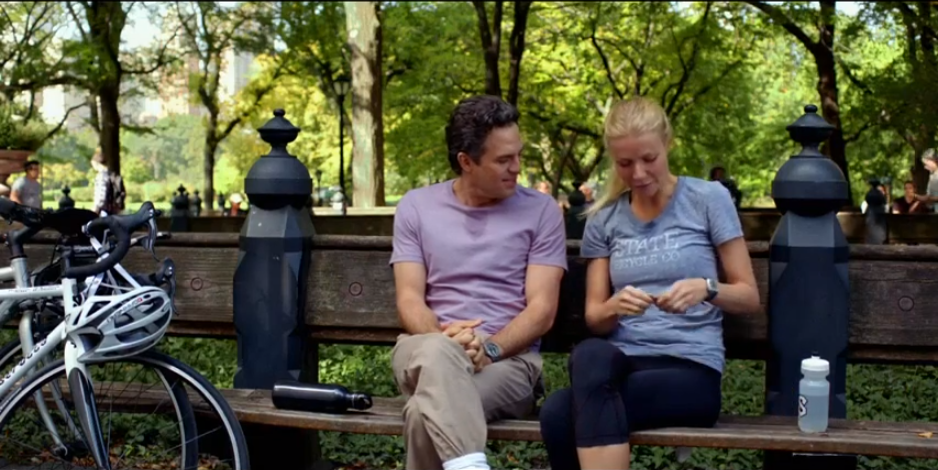Addiction to sex seems to be a recurring theme on the minds of many film directors lately. Just consider the latest releases about sex addiction: Choke (2008), Shame (2011) and Don Jon (2013). Now, viewers can learn more about the affliction with Thanks for Sharing, which will open in theatres on Oct. 18.
The film asks poignant questions and raises some fiery issues. Centering on three men recovering from sex addictions, Thanks for Sharing is both funny and heartbreaking.
Meet Adam, Neil and Mike. Adam (Mark Ruffalo) is handsome, intelligent and five years sober. He attends meetings regularly, falls in love and seems settled. Neil (Josh Gad), an adorable doctor with frizzy black hair and a worrying love for doughnuts is a wreck; he masturbates, rubs against women on the subway, and even films up his boss’ skirt. Finally, there’s Mike (Tim Robbins), a toughened guy who acts as a sage and saviour, having successfully overcome his addictions to sex and alcohol for 15 years.
The film opens with Adam praying on his bed in the nude, and the voice-over informs the viewers: “Five years. I remember I couldn’t manage five days.”
While walking down the streets of New York on his way to work, Adam desperately tries to ignore women’s legs, tight skirts, push-up bras and the like.
But things start to look up for Adam when he falls in love with Phoebe, expertly played by Gwyneth Paltrow. The two meet at a “bug party,” where Adam skewers bugs for a barbecue (odd idea, but whatever). As Adam and Phoebe get to know each other over several dates, Adam becomes increasingly worried about telling Phoebe about his past.
Phoebe is seemingly perfect: she has overcome breast cancer, she’s training for a triathlon and eats like a bird. But, things are not as they seem. When Phoebe learns of Adam’s former addiction, she reconsiders. Issues of judgment are brought out in a fiery battle between the couple when Adam says, “Cancer gets you sympathy, addiction gets you judgement. Anyways, you think you’re normal with all that food shit and your obsession with exercise?”
As for Neil, his penchant for sex and food is hilarious to watch. When Adam asks him why he partakes in the meetings, Neil shrugs and innocently suggests, “Free bagels?” But some scenes are more serious, pointing to the fear that addiction brings about. At a meeting, a freaked-out Neil says, “The truth is I am out of control, I am scared, I need help.” Slowly but surely, Neil is helped by Adam, his “sponsor”, with a regiment of no masturbation, no internet, and no pornography.
Mike on the other hand is hard to like. When his son appears on his doorstep after years of estrangement, Mike is hardly pleased. He begrudgingly permits Danny to stay. Working on a pond or meditating in the garden, the duo seem to be reconciling until the son confronts his father about being physically abused. Mike’s character, as a role model, suddenly takes on darker colours.
The point of the movie is clear: humans get addicted to things (sex, alcohol, gaming), but they need to be trusted and helped instead of judged, inorder for them to get back on track. The best part of the film is the questions it raises: How often do we judge people based on their imperfections and why? Is Phoebe really exemplary? Do we ourselves have addictions we would like to sweep under the rug?
Thanks for Sharing will appear in theatres Oct. 18.
